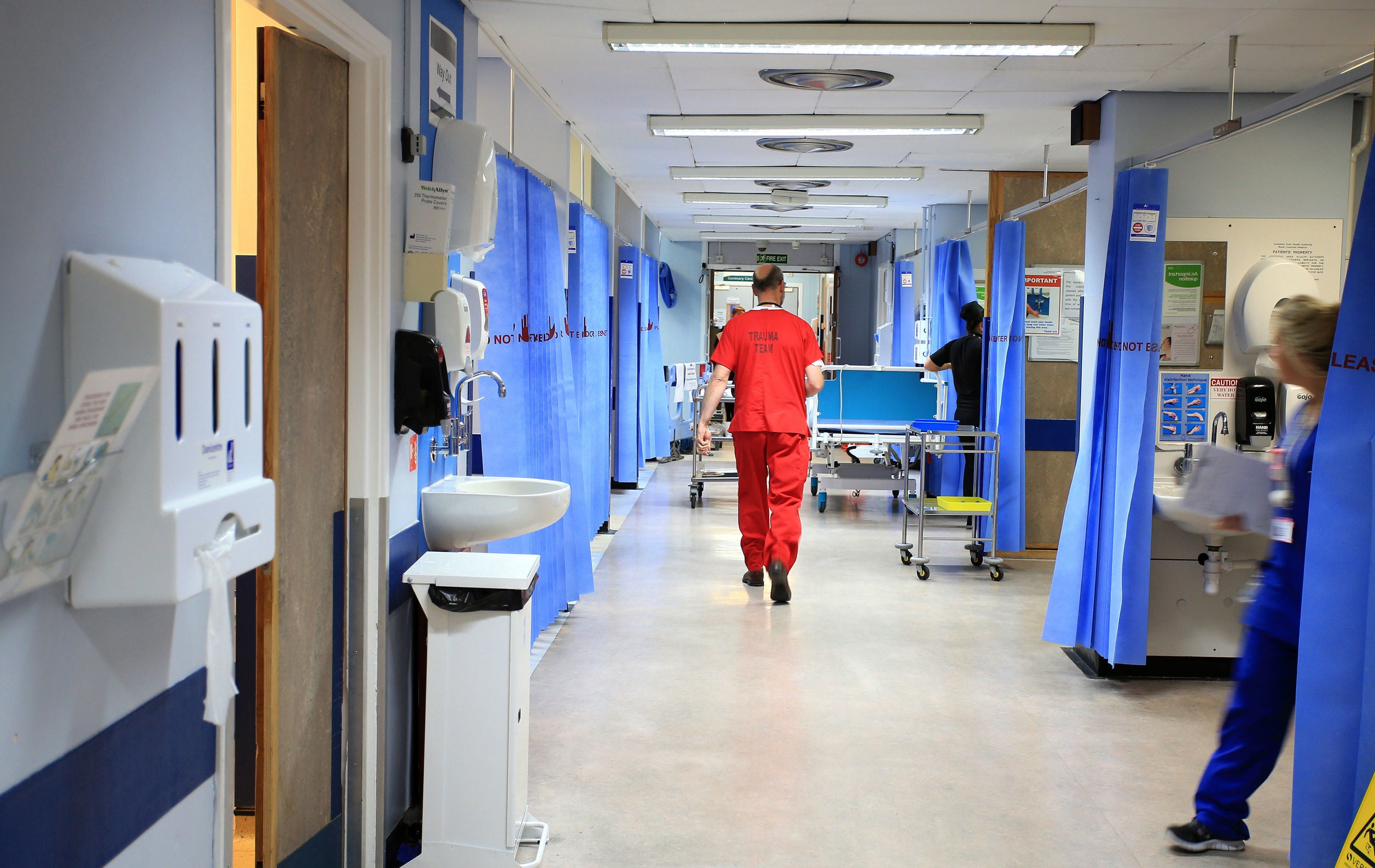Desperate couple with long Covid planned suicide as ‘neglected’ sufferers struggle
Anxiety and depression are much more prevalent in people suffering from long-term Covid symptoms than the general public, research has shown
Patients with long Covid are growing increasingly depressed – and even suicidal – due to a lack of support and care, experts and campaign groups have warned.
Research has shown that anxiety and depression are much more prevalent in people suffering from persistent coronavirus symptoms than the general public, while polls point to a rise in suicidal ideations among patients.
Long Covid symptoms are adversely affecting the everyday lives of 1.4 million people, according to estimates from the Office for National Statistics, with 398,000 reporting that their ability to undertake normal activities had been “limited a lot”.
And an informal survey of 185 people conducted last month by Survivor Corps, a US-based support group, found that 46 per cent had experienced long Covid-related suicidal ideations – up from 18 per cent when the same poll was conducted last year.
The Independent knows of patients who have considered assisted dying, only to later change their minds, while others say they came up with plans to kill themselves as a result of long Covid, which has made it difficult to live the lives they once had.
The mental health charity Mind said it had received queries via its helpline from long Covid patients who “talked to us around their anxieties about recovering or when the next symptom might affect them”.

Dr David Strain, a senior clinical lecturer at the University of Exeter Medical School, who is conducting long-term research into the condition, said the number of people “left despondent” by their experiences of long Covid is “going up and up”.
He said he expected the suicide risk among the sickest patients to be “significantly higher” than the general population, adding that there is a sense of “helplessness” among the worst affected due to the slow progress that is being made in better understanding and treating long Covid.
Kerry McLeod, head of information content at Mind, said some of the patients who had contacted the charity “shared how their tiredness has impacted their ability to get on with their day to day, leading them to feel down and lonely”.
A study published this week showed that, of 155 participants, one in five developed moderate to severe depression over one year, while almost three-quarters had concerning alcohol use.
The research, conducted at the Mater Hospital’s long Covid clinic, said that patients with no previous history of depression or anxiety prior to Covid-19 are now presenting with neurological conditions.

Antony Loveless, from Southend in Essex, told The Independent that he and his partner, Claire Hooper, came up with a plan to kill themselves after both developed long Covid at the beginning of last year.
The pair suffered from various gastrointestinal, neurological and respiratory-based symptoms – at the height of their illness, they were only able to get out of bed for a handful of hours each day due to severe fatigue – but were repeatedly dismissed by GPs, social care services and clinicians.
After losing their jobs as an NHS nurse and lead accident investigator at Gateway Port, the couple said to one another that they wanted to end their lives. “Literally overnight, everything changed,” said Mr Loveless, a former war correspondent. “Our income went. We were both really active, we’d take the dog for a walk before went to work. Did 10-12 hours of work every day. That all went.
“One night, Claire told me, ‘I don’t want to do this any more’. I told her I’d had enough too, I couldn’t do this any more. ‘I want to die’. In a way, it took all the weight off our shoulders. We came up with a plan to kill ourselves,” said Mr Loveless.
It was only after the couple realised it “would destroy the lives of our children” that they decided to keep living. Their situation also improved after they were granted disability benefits as a result of their conditions and, although they still suffer from long Covid, their suicidal ideations have since passed.
Lucy, from London, told The Independent she had never experienced suicidal ideations until she developed long-term gastrointestinal issues and heart irregularities in the summer of 2020 following a Covid infection.
“I came up with plans to kill myself and how to do it because I just wanted to stop the pain and couldn’t say how I was going to get better. Thankfully, I got support from the Listening Place [a mental health charity] and since January, the suicidal thoughts have gone.”

Earlier this year, an inquest heard that a young man who had trained as a medic at Oxford University ended his life after struggling with long Covid.
Abhijeet Tavare, 27, contracted Covid in September 2020, which he initially recovered from, only for long-term symptoms to emerge. The inquest in Hertford was told that he had suffered from palpitations, difficulty sleeping, extreme fatigue, as well as cognitive decline caused by brain fog.
With research ongoing, Dr Strain said it was unclear whether the prevalence of depression and suicidal thoughts in long Covid patients is “reactive” or the result of neurological change. “People could be depressed because they’ve lost the ability to play football with their kids. They’ve lost the ability to go to work and do the things that actually makes them them,” he said.
“Or has there been a genuine neurochemical change within the brain? People get brain fog, which just means the neurones aren’t firing as quickly as they should. This may also be affecting our ability to stabilise our mood and respond appropriately to different stimuli.”
He said long Covid shared many similarities with chronic fatigue syndrome, or myalgic encephalomyelitis (ME). The condition increases the risk of suicide among patients by almost sevenfold, research has shown.
Ondine Sherwood, a spokesperson for the charity Long Covid SOS, said the subset of patients who “cause the most concern” are the 398,000 individuals who are effectively disabled and unable to undertake everyday activities.
The NHS has established a network of long Covid clinics but the latest data shows that, between 14 March and 10 April, only 5,818 patients in England received “specialist assessments” at these centres.
“There’s not enough investment, and there’s too much variability in the centres,” Ms Sherwood said. “It’s been said over and over again, but unless we get the money to better research and treat long Covid, this health crisis is going to grow and grow – to the detriment of people’s mental health.”
If you are experiencing feelings of distress and isolation, or are struggling to cope, The Samaritans offers support; you can speak to someone for free over the phone, in confidence, on 116 123 (UK and ROI), email jo@samaritans.org, or visit the Samaritans website to find details of your nearest branch.
People can also contact Mind via Infoline, which provides over-the-phone information on mental health problems, treatment options and advocacy services, on 0300 123 3393.
Join our commenting forum
Join thought-provoking conversations, follow other Independent readers and see their replies
Comments
Bookmark popover
Removed from bookmarks